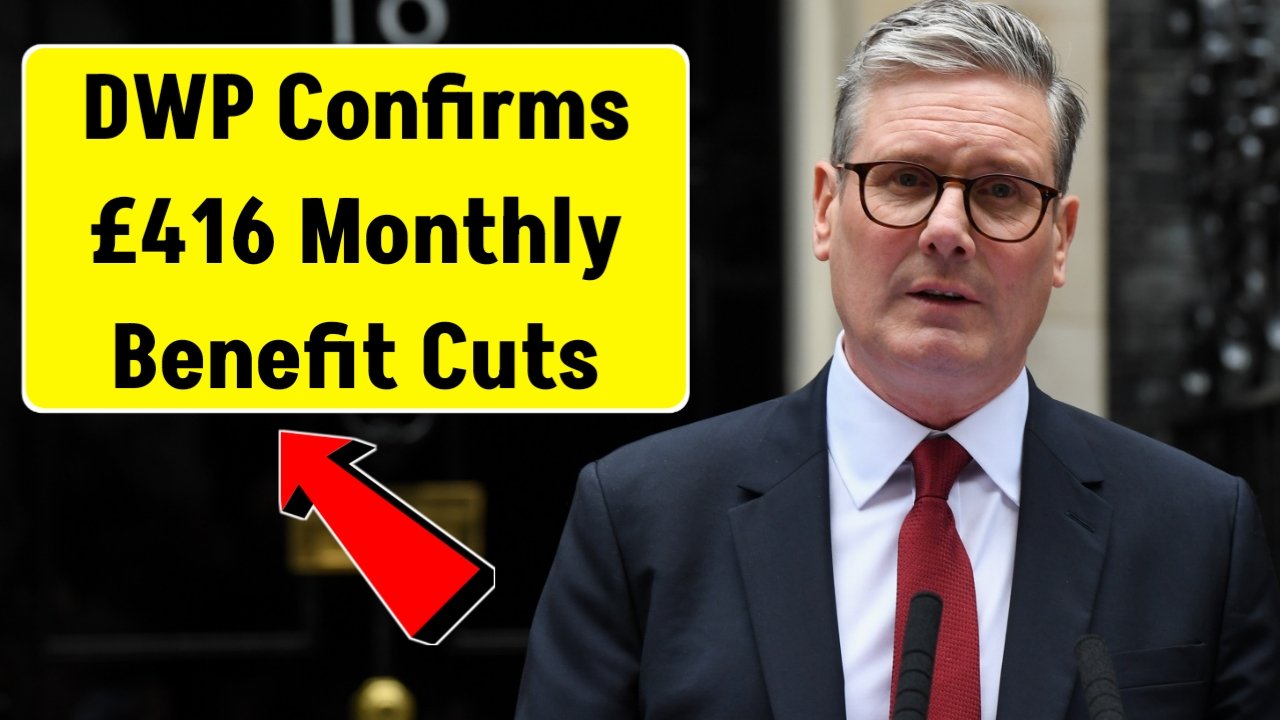The Department for Work and Pensions (DWP) has confirmed a significant reduction in monthly support, impacting families across the UK who rely on benefits for daily essentials. This £416 monthly benefit cut is not just a number—it represents a serious shift in financial support during a time of rising living costs. For families already struggling with energy bills, rent, and groceries, this cut could mean re-evaluating their entire household budget.
Who Will Be Affected?
The reduction targets households receiving multiple benefits, especially those who were previously receiving top-ups under Universal Credit or disability-related entitlements. If you’re part of a low-income family, a carer, or someone living with long-term illness, there’s a high chance this cut might directly impact your monthly income. Families with children or dependents may be hit even harder if they rely on these benefits to cover housing or food.
Why Is This Cut Happening Now?
The government has cited budget balancing, inflation control, and benefit overpayments as key reasons. The DWP says this move is part of a larger cost-saving strategy, aiming to streamline the welfare system. However, many experts argue this could worsen inequality, especially during a time when millions are still recovering from the long-term financial impacts of the pandemic and ongoing inflation.
What Should Families Do Immediately?
If you’re affected, don’t wait until the cut hits your bank account. The first step is to review your Universal Credit journal or payment summary to check if your upcoming payments are lower than expected. You can also contact your local Jobcentre or DWP office for clarification.
Next, look into support schemes available in your local area. Councils often offer discretionary housing payments or emergency vouchers for food and energy. You might also consider seeking financial advice from UK-based charities such as Turn2Us, Citizens Advice, or StepChange. These organisations can help you apply for hardship grants or help you create a new household budget.
Can You Appeal This Reduction?
Yes, but only in specific cases. If you believe your payment has been wrongly reduced due to an error or miscalculation, you have the right to request a mandatory reconsideration. This is the first step in the appeal process. Be sure to submit any supporting documents, such as medical letters or tenancy agreements, that justify your need for the original amount.
Alternative Support Available
Although this benefit cut may feel like a setback, there are still other forms of support you can explore. Families may be eligible for:
- Cost of Living Payments (scheduled separately from Universal Credit)
- Council Tax Reduction Schemes
- Free School Meals or Uniform Grants for children
- Warm Home Discount for winter energy bills
- Charity Grants from national and local organisations
Each scheme has its own eligibility criteria, so take the time to apply early and track your applications.
How Will This Impact The Wider UK Economy?
Experts warn that cutting £416 from already stretched households could dampen consumer spending, reduce school attendance for kids lacking essentials, and increase mental health pressures. Communities in urban and rural parts of the UK—particularly those in high-deprivation zones—are expected to feel the greatest pressure. The benefit system acts as a financial safety net, and when that net is weakened, the most vulnerable often fall first.
Government’s Response To Public Backlash
As criticism grows, the government insists that the cut is a “necessary adjustment.” Officials claim other forms of support are in place, such as child benefit increases and one-off energy support payments. However, advocacy groups argue these supports don’t fully make up for the regular, dependable £416 income being removed from so many homes.
How To Track Your Payments Online
You can monitor your DWP payments by logging into your Universal Credit online account or checking with your bank statements. If there are discrepancies or unexpected reductions, make sure to report them immediately using the “Report a change” option or by contacting the Universal Credit helpline.
Is This Cut Permanent?
At this stage, the DWP hasn’t confirmed whether this benefit reduction is permanent or temporary. However, based on historical data, once such cuts are introduced, it’s rare they are fully reversed. This makes it all the more important for families to seek alternate income streams or government assistance as early as possible.
What UK Families Can Learn From This
This situation is a reminder that benefit systems can change quickly and without much warning. Building an emergency fund, knowing your rights, and staying updated with DWP policy announcements can help you prepare for such events in the future. Financial education and planning are now more important than ever.
Final Words
The £416 monthly benefit cut may bring stress and uncertainty, but knowing your rights and options can reduce the shock. If you or someone in your family is affected, take immediate steps—review your payments, apply for available grants, and don’t hesitate to seek professional advice. The earlier you act, the better you can protect your financial stability in these challenging times.
FAQs
Q1. When will the £416 benefit cut take effect?
The cut is being implemented from August 2025, and it may reflect in your next Universal Credit or DWP benefit payment.
Q2. Can I avoid the cut by appealing?
You can only appeal if there’s a valid reason such as a miscalculation or overlooked medical condition. Use the mandatory reconsideration process.
Q3. What other benefits can I apply for after this cut?
You can explore housing support, food vouchers, council tax reductions, charity grants, and energy bill relief schemes.
Q4. Is every UK resident affected by this cut?
No, this cut mainly targets families receiving multiple benefit types, especially those with children, disabilities, or caring responsibilities.
Q5. Where can I get free help with budgeting and benefit advice?
You can contact Citizens Advice, Turn2Us, or StepChange for guidance tailored to your situation.

